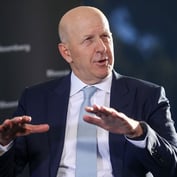WASHINGTON BUREAU — Two members of the Senate Banking, Housing and Urban Affairs Committee say they want further study of the idea of applying the fiduciary standard to broker-dealers because they do not believe advocates have made a convincing case for creating a total fiduciary standard.
Two members of the Senate Banking, Housing and Urban Affairs Committee say they do not believe advocates for creating a total fiduciary standard have made a convincing case.
Sen. Timothy Johnson, D-S.D., and Sen. Michael Crapo, R-Idaho, have expressed that opinion in a letter to Sen. Christopher Dodd, D-Conn., chairman of the committee, explaining why they are seeking more study of the fiduciary standard issue.
Because the idea of applying the fiduciary standard to broker-dealers as well as to investment advisors has not been the subject of committee hearings, “we had no ability to evaluate whether investors would be better protected under this additional regulatory scheme, or the proposal’s cost or impact,” Johnson and Crapo write.
Johnson has refused to make the letter public; National Underwriter obtained a copy of the letter from another source.
Consumer groups and financial planning groups want Congress to apply a fiduciary standard of care both to investment advisors and to broker-dealers that provide personalized financial advice.
The standard would require both investment advisors and broker-dealers to act only in the best interest of their customers.
Insurance producers want Congress to continue applying a fiduciary standard of care to investment advisors and a suitability standard to broker-dealers.








 March 08, 2010 at 07:00 PM
March 08, 2010 at 07:00 PM










